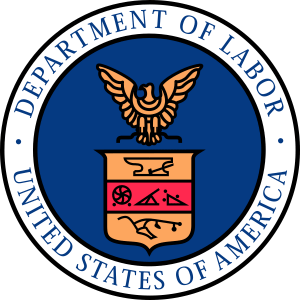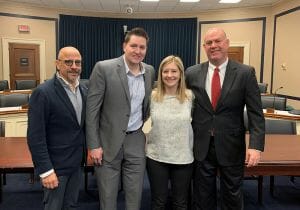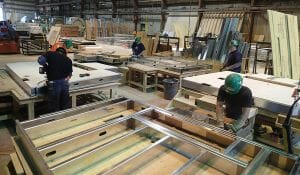MBI Members Provide Testimony to White House Regarding Concerns about Davis-Bacon Act Expansion
On a recent call with the White House’s Office of Information and Regulatory Affairs (OIRA), several MBI members provided testimony about the potential impact expanding the Davis-Bacon Act (DBA) would have on their companies and the industry.
Under the Department of Labor’s Wage and Hour Division, the Administration is proposing to expand the ninety-year old construction law to cover “secondary sites of work” which would include modular prefabrication plants for the first time ever.
In addition, the Department of Labor’s estimated cost of compliance with the proposed DBA expansion was stated as a paltry $78!
MBI members provided testimony in several key areas, including:
- Cost of compliance. Testimony was offered showing that it would actually require some manufacturers to hire an additional HR/payroll person to monitor and track all the various wages in the factory, ensure the accuracy, and submit the required certified payrolls at a cost closer to $75,000!
- Cost of projects. Two members (a developer and a GC) offered testimony that the cost of projects would increase by 25-30%, which is counter-productive to President Biden’s affordable housing initiatives.
- Voided contracts. Multiple members mentioned that their current GSA contracts would immediately need to be voided based on expected increases in cost, again adding to the compliance costs.
- Lost revenue. Several members stated that they would not be able to bid federal work if the proposed rule become final, costing their small businesses a significant portion of revenue.
- Inability to comply. Lastly, a key point made was that, despite the project and compliance cost, some modular companies simply cannot comply with the rule as written. MBI member testimony detailed how the worker risk, roles, and responsibilities are different in a factory versus on site.
The Opposition Continues
It is important to note that MBI is not opposing the Davis-Bacon Act itself, just the unprecedented expansion to offsite factories. Many MBI members are involved on Davis-Bacon projects and do pay federal prevailing wages on the site of work as defined by the DBA.
It was extremely important for the White House to hear directly from companies impacted by this proposed rule. OIRA’s review is the last step before the final rule gets published in the Federal Register. We are grateful for our members who took one more shot at getting the Biden Administration to reconsider this terribly misguided policy change. Once the final rule is published (expected in the next 30 days), MBI will review and assess our next steps including possible legal action against the Department of Labor.
MBI would like to thank the following members for their testimony on the call:
- Stephen Shang of Falcon Structures in Texas
- Mike Wilmot of Wilmot Modular in Maryland
- Brad Gudeman of Modular Genius in Maryland
- John Buongiorno of Axis Construction in New York
- Matt Slataper of Ramtech Building Systems in Texas
- Vaughan Buckley of VBC in California, Philadelphia, and Europe
- Jim Gabriel of Modlogiq in Pennsylvania
- Amin Irvin of Ginosko Development in Michigan
- Alan Rasmussen of Modern Building Systems in Oregon
How Can You Help?
Please consider making a one-time donation to MBI’s legal defense fund to ensure we have necessary funds to prevent this massive barrier to industry growth.
AND
Support Our Efforts to Help Grow the Industry - MBI's focus is to identify, reduce, and remove barriers while capitalizing on opportunities in key markets. To be successful, it is imperative that we continue to build our war chest, so funds are available when needed.
We are asking all MBI member manufacturers to purchase one $20 MBI Seal for each new module constructed.
Additional Government Affairs Articles
MBI Defeats Davis-Bacon Expansion
The Modular Building Institute, with the support of its members, has defeated the US. Dept. of Labor’s Davos-Bacon Act expansion, and the stakes for the modular construction industry could not have been higher.
Read Complete ArticleMBI Delegation Briefs Congressional Staff on the Negative Impacts of the Davis-Bacon Act Expansion
On a recent call with the White House’s Office of Information and Regulatory Affairs (OIRA), several MBI members provided testimony about the potential impact expanding the Davis-Bacon Act would have on their company and the industry.
Read Complete ArticleMBI Secures NY Governor Veto On Bill Targeting Modular Industry
A large fleet owner member of MBI was recently delayed in Georgia due to the state’s confusion over the details of the International Building Code. According to the company’s regional general manager, “The feedback we got was, ‘Your plans are not up to date, you need to bring them up to code.’”
Here’s how MBI was able to correct the state’s misunderstanding.
Read Complete ArticleWhat is the Davis-Bacon Act and How Does it Affect Modular Construction?
Adopted in 1941, the Davis-Bacon Act was written long before the modular construction industry gained momentum. Now, the US Dept. of Labor is considering applying the law in ways that will seriously curtail the use of modular construction for federal and state projects.
Read Complete Article



